Savoring the Chaos: Issue No. 7

The Flat Tire and the Frenchman
Last summer, my neighbor Pascal, who was renovating the bathroom in our gite, saw me unloading a new bike out of the back of our car. He asked if I wanted to go for a ride. I said “I can’t today, what about tomorrow”. And there it was. I had just committed to discomfort.
Pascal doesn’t speak English. We usually communicate through a mix of French nouns, translation apps, and shared human suffering.
I’d just bought the bike — a €200 beast from the local superstore. Not exactly performance grade.
Five gears. Suspension built for vineyard potholes. Tires like tractor treads. The kind of bike you buy when you don’t want to feel bad if someone steals it.
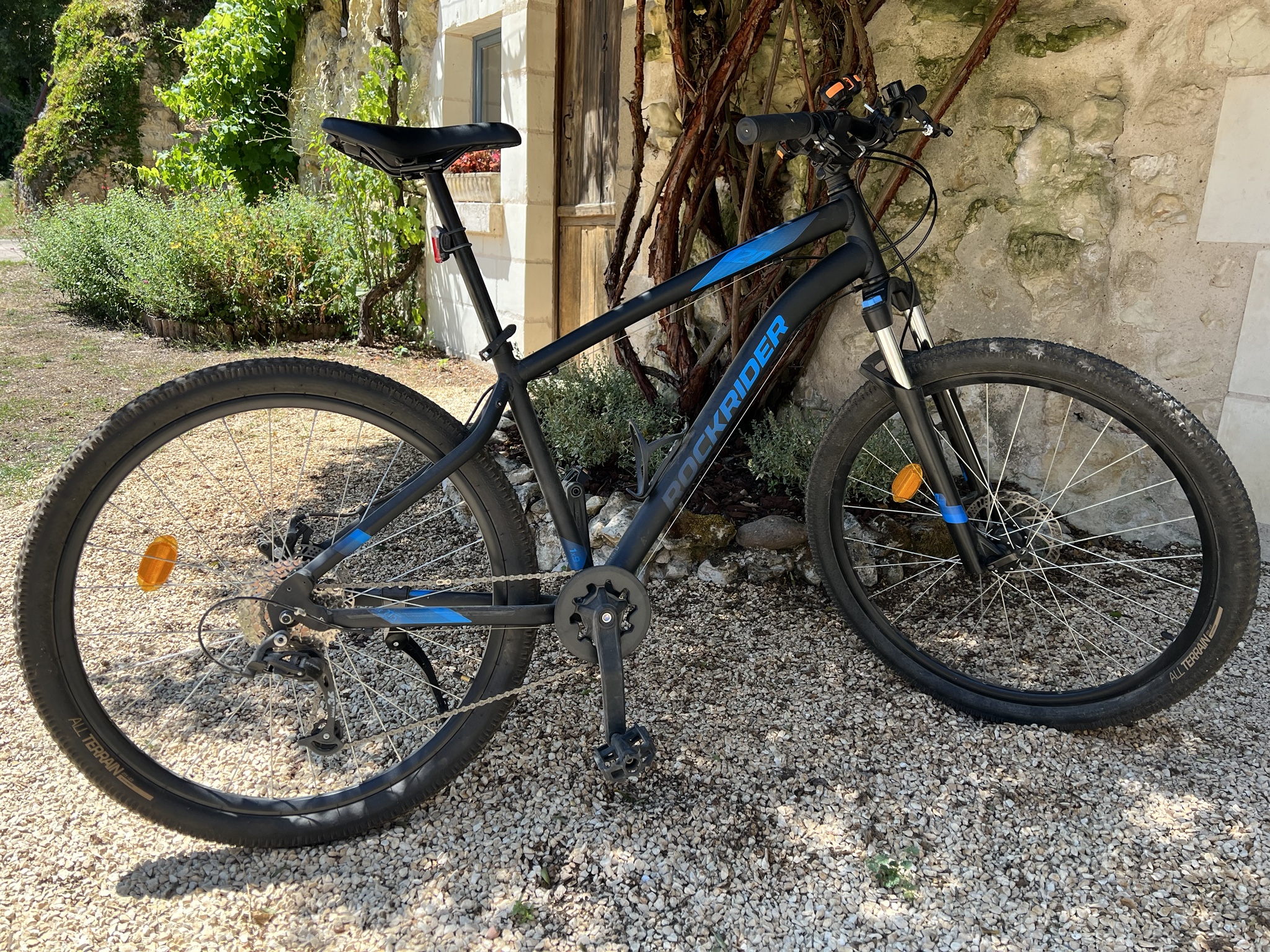
Pascal, on the other hand, rides every Sunday. Fifty-mile routes. Blois and back before most people have finished their first croissant. His bike has at least twenty gears and probably cost more than my first car.
But I used to ride too — carbon road bike, Santa Monica sunshine, legs that worked — so I figured, why not?
He suggested Montrichard — about 5 miles away, mostly flat, a scenic ride along the Cher.
Sounded reasonable.
The next day at 5 p.m. Pascal texted me that he was ready to roll. I was ready too, but it was pretty hot outside. I was wondering if should have brought a water bottle with me.
We rolled past vineyards and barley fields (yes, actual barley — it looks like wheat if wheat had better hair). We dropped down to the river and banged a left toward town. It was peaceful. Serene. Cows grazed in the distance. I was getting used to the bike. I thought, I could do this more often.
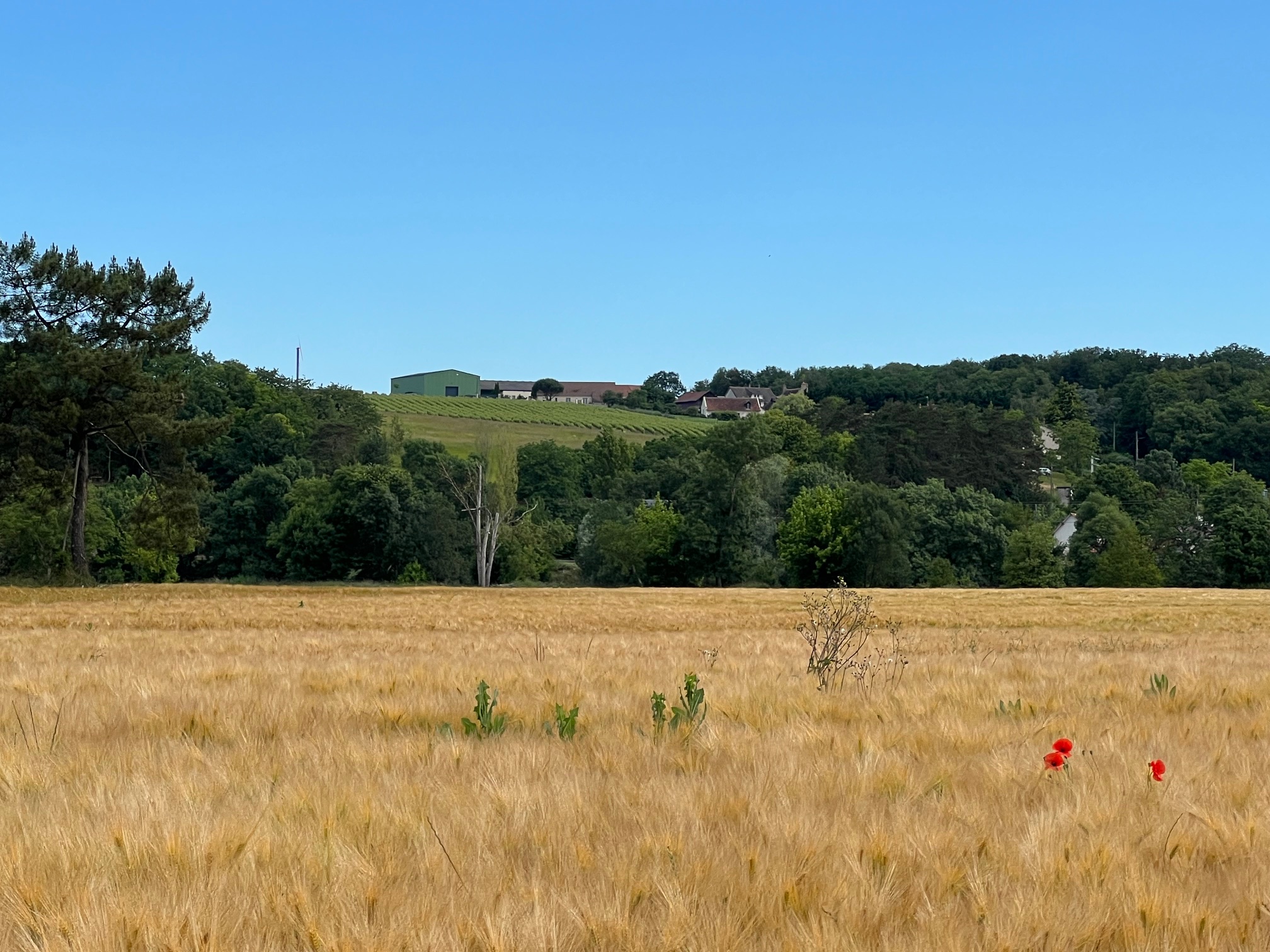
We crossed the bridge into town and hit the old section — cobblestones, of course.
Montrichard has a 12th-century donjon perched above it — built to spot invaders, now mostly serving as a scenic reminder that France has been through a lot and still finds time for cheese.
Then Pascal turned to me and asked, “Ça va avec les côtes?”
Was I okay with hills?
I remembered the brutal hills I used to climb back in Dana Point. I figured, How bad could it be?
That’s when I noticed my rear tire had gone flat.
Pascal had ridden ahead while I waited for a car to pass. I called out, but he didn’t hear me. So I texted him: “Hey Pascal.”
He turned back. I pointed at the back tire and said “I have a flat tire”. Even though he doesn’t speak English, the confused look on his face made me think he thought I’d said “I’m fat and tired.”
Which, fair.
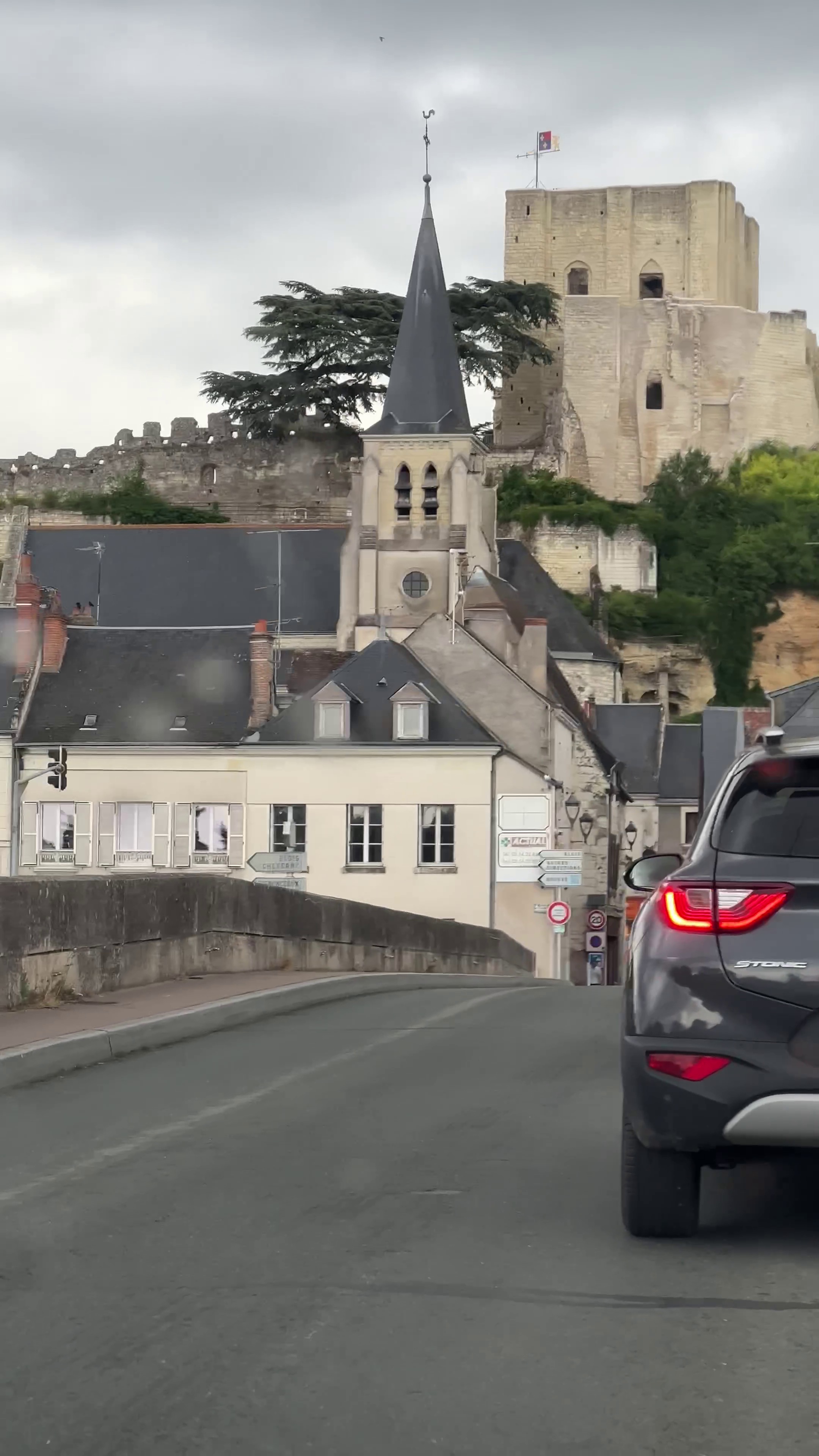
Luckily, we were right next to the town's hardware store. Having lived in and next to this town his whole life, of course Pascal knew the people that ran the place.
He motioned for me to go in the store with him. We went inside. I was wondering if a hardware store had bike tires.
Pascal talked to his buddy and pretty soon he was using their air compressor to pump up my rear tire. I didn’t think it had just lost air, I think the cobble stones or something in the street punctured my tire.
But what was i going to to do? We were about 6 miles from the house by this point, I wasn’t going to call D come pick me up. No way was I going to have my new friend have that image of me. Plus, Pascal knew bikes, maybe he was right. We kept going. Then came the hill.
Steep. Sharp. Completely unreasonable.
I couldn’t stand to pedal because the suspension bounced like a trampoline. No granny gear either. No mercy. And the tire? It was loosing air fast.
“He pointed to a house. “Mon enfance,” he said. His childhood home. We stood there for a moment — him, lost in memory; me, calculating how long it would take to walk home dragging a deflated steel anvil. ”
I caught up to Pascal at the top, wheezing. He looked at me like a kindly priest seeing a man arrive at confession soaked and bleeding.
He said, “Ça va?”
I said “Oui,” which in that moment meant, “No, but I will lie to your face.” I could see relief ahead, a down hill slope. We pushed off. Then he turned right. Another hill. No downhill for me yet.
At this point, I wasn’t sure if the hills were real or if I was hallucinating them.
We climbed. My tire softened. My will evaporated. But then, at the top, Pascal stopped.
He pointed to a house. “Mon enfance,” he said. His childhood home.
We stood there for a moment — him, lost in memory; me, calculating how long it would take to walk home dragging a deflated steel anvil.
But the view was spectacular. The Cher valley spread out below us. Rooftops. Trees. Quiet. It was a perfect place to feel completely unqualified for life in France.
We started the descent.
Downhill. Flat tire. Nobby treads. It felt less like biking and more like taming a panicked horse. I made it somehow. Pascal looked at my tire, then pointed to a contrôle technique garage down the street.
Of course he knew the guy there too. We borrowed another air compressor.
Six miles to go.
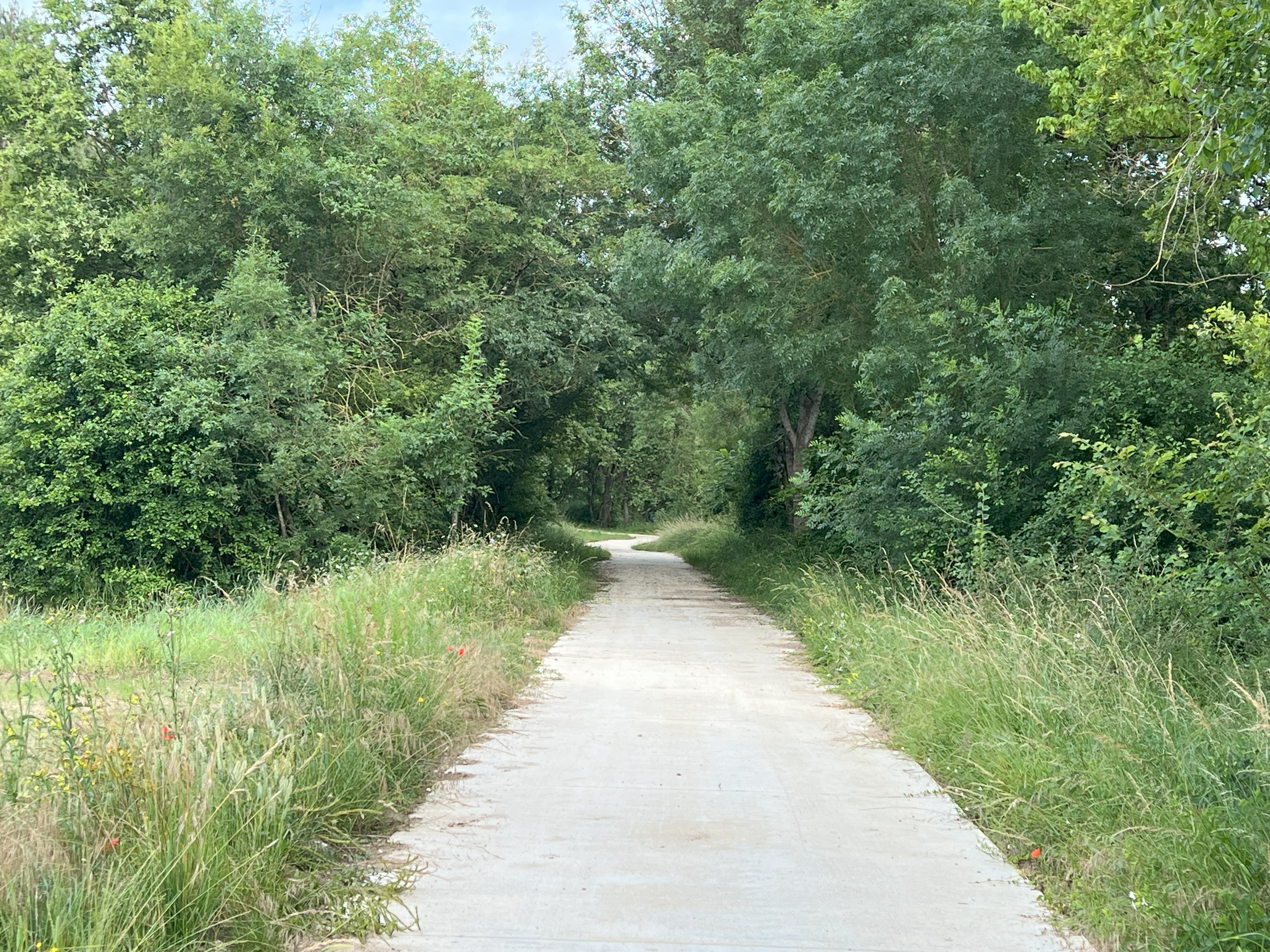
The tire went flat again before we crossed the bridge. I didn’t care anymore.
I rode the final five miles on a tire that was more suggestion than structure. Somehow, the rim held.
So did I.
When we got back, Pascal looked at me, then at the tire, then back at me. He didn’t say much. Just nodded, like he was confirming something he already suspected.
Then he said, “Demain?”
I laughed.
He didn’t.
A Getaway: Font-Romeu – Pyrénées-Orientales
In August of 2023, during a brutal canicule (heatwave), we bailed on the oven of southern France and made a run for the mountains.
The house we were renting in Caunes-Minervois had one portable A/C unit in the bedroom — which meant the rest of the place functioned like a convection oven set to “low and relentless.”
So we packed the car and headed for Font-Romeu, a resort town in the Pyrénées near the Spanish border, known for its fresh air, pine trees, and Olympic training altitude.
The drive up is worth the trip alone.
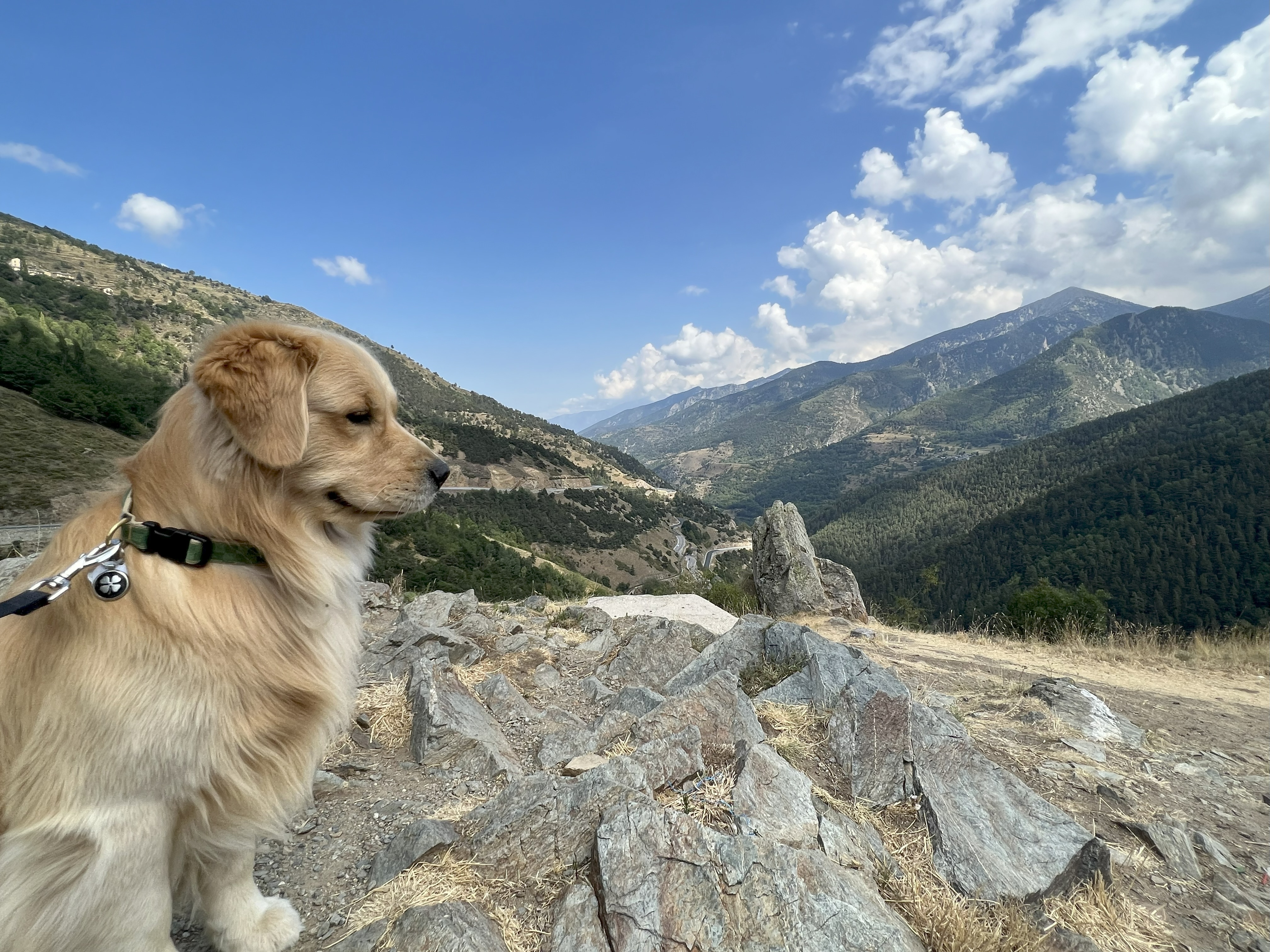
You climb through winding passes with panoramic views that make you want to pull over every ten minutes — deep valleys, wild horses, and that dramatic shift in light you only get in the mountains. Windows down, temps dropping, stress evaporating.
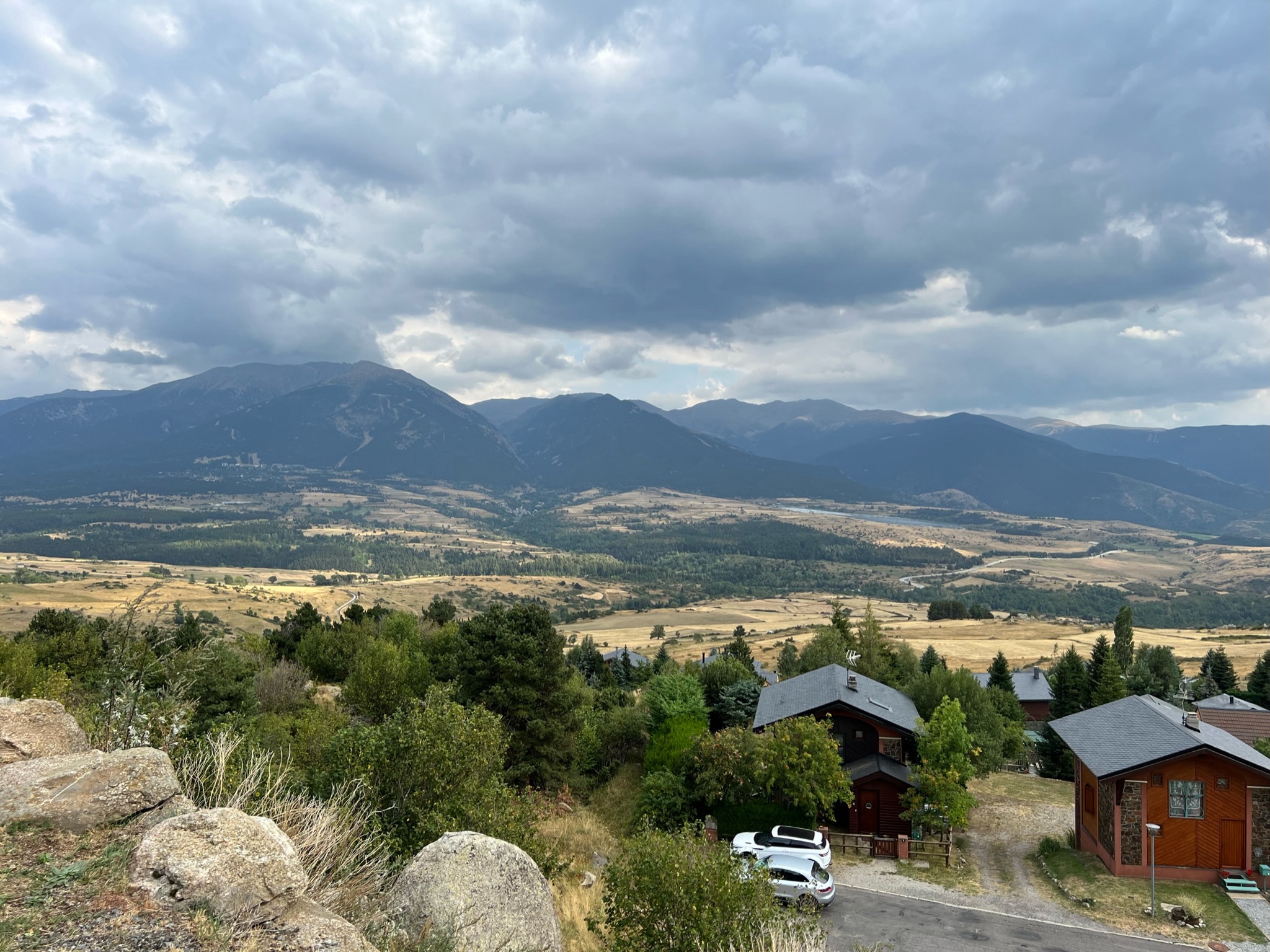
Once in town, we wandered the pine trails, slept with the windows open, and took deep, grateful breaths of 60-degree air. Breakfast came from a charming spot called Aux Délices de Neiges, and one night — despite the reviews — we had a fantastic pizza at Pizzeria le Joffre. Go figure.
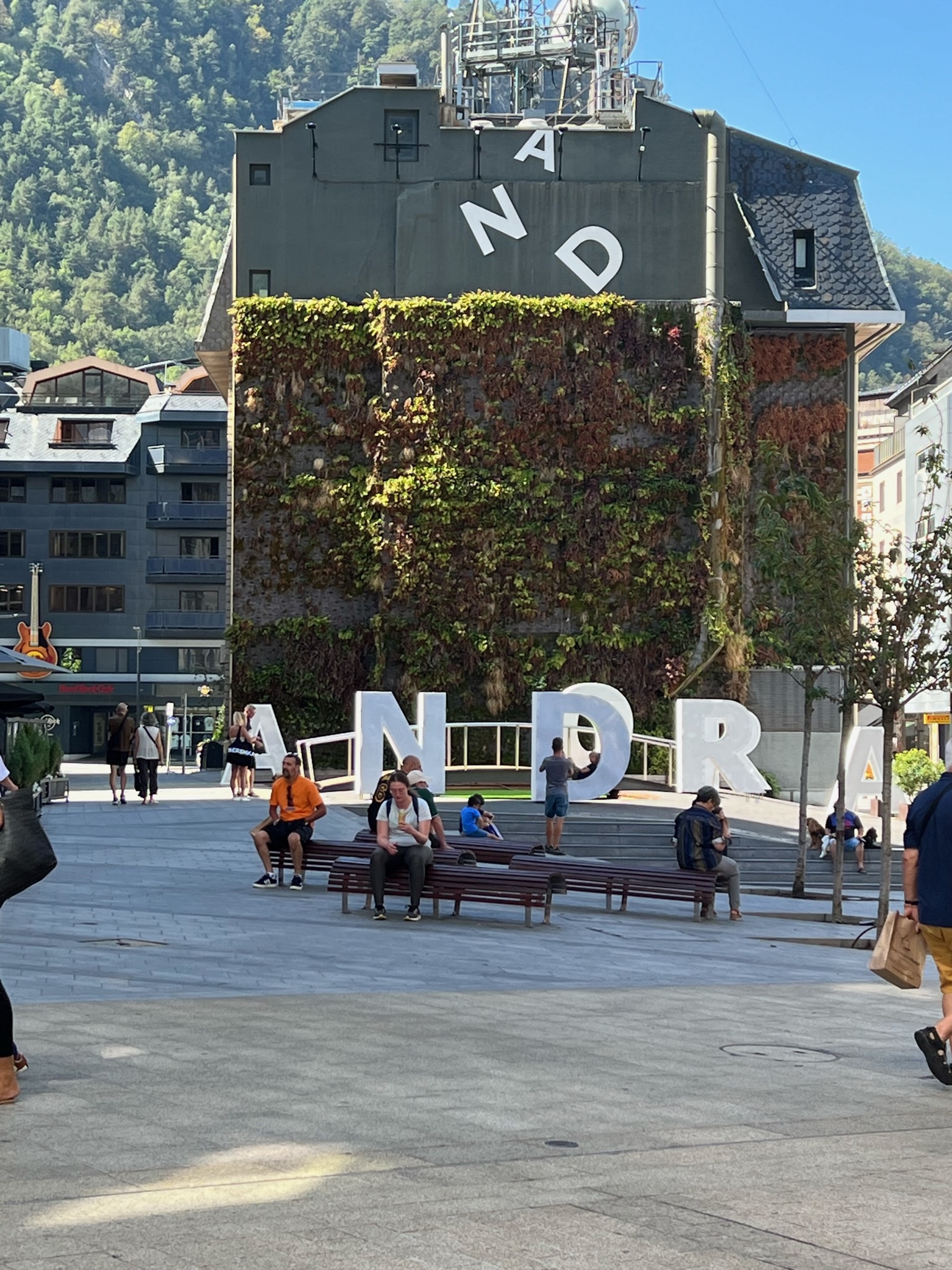
We even made a day trip down to Andorra (which felt like Vegas for hikers), and to Llívia, the strange little Spanish town trapped inside France.
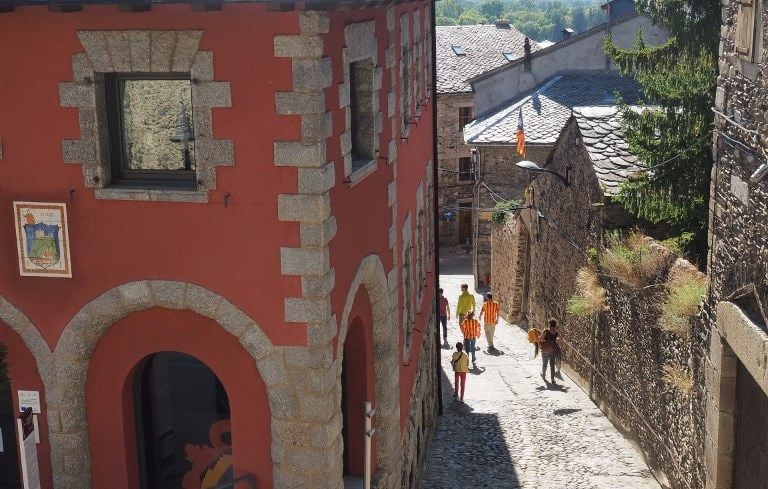
It’s technically Spain, but completely landlocked by French territory — a geopolitical accident that now sells espresso and jamón ibérico. From what I hear, and I kid you not, it ended up that way because of a clerical error.
Pro tip: If you ever find yourself melting in a stone house in August, this is your escape hatch.
The Quirky Bit
The Bonjour Gauntlet
There are a lot of cultural differences you expect when you move to France: the slower pace of life, the long lunches, the strike calendars. But no one warns you about the bonjour.
Not just saying it. But knowing when to say it.
Let me paint the scene. You walk into a doctor’s office. No receptionist. Just five people in plastic chairs and a bunch of closed doors. No signage. No check-in kiosk. Nothing. You step into the room, confused — and that’s when it happens.
All five people look up and say “Bonjour.” Like a weird, polite cult.
It’s disorienting the first time. You’re already sweating because you don’t know if you’re supposed to knock on a door, announce yourself, or just sit and wait until a stranger opens one and says your name.
But now you're also supposed to greet the entire room? Out loud?
You mumble something that resembles “bonjour” and slink into a chair, feeling like you failed a secret test.
At your next doctor's visit? You’re waiting for someone new to walk in so you can hit them with your best bonjour like a local. “Bonjour monsieur,” you say with pride.
You nod. You belong.
And it’s not just the doctor’s office. It’s everywhere.
At the grocery store Grand Frais, you walk in through these metal pipe gates like you’re entering a club — and then there’s a desk to the left where the manager sits, watching. Not doing anything, just… watching.
As you enter, he locks eyes with you and says, “Bonjour monsieur.”
Not in a friendly “Hi, welcome!” way. More like a solemn grocery oath.
You go to pick up your car from the garage. You’re lost in your own world, mentally bracing for the invoice. And then — 20 feet away — some older guy in a 1972 suit coat, dressed like he’s headed to church, looks up from a folding chair and hits you with a deep, steady “Bonjour monsieur.”
You blink. Is this a test? Is this a religion?
Nope. It’s just… France.
And once you accept it, once you surrender to the cult of the bonjour, there’s no going back. You start to enjoy it. You feel weird when it doesn’t happen. You judge people who skip it. You throw bonjours like ninja stars.
That’s when you know you’ve been fully Frenched. And just when you think you’ve mastered the bonjour, you realize: There are different levels of bonjour.
It’s not just a greeting. It’s a message. A tone. A signal. A soft, Gallic judgment.
You’re on the bike path. A woman passes by, cheerful and sing-songy:
“Bonjour !” Like she’s sprinkling lavender behind her.
Then a man comes the other way. His is different. Lower. Slower. Territorial.
More like: “Bon. Jour.” It’s not unkind, but it says: I see you. I know this trail. I was here before you. Tread lightly, new guy.
Sometimes you don’t even respond. You just nod, like two grizzly bears agreeing not to fight.
Then there’s the market butcher. Not the one in the shop — the real guy. The one who pulls his gleaming trailer into town every Friday like it’s a concert on wheels.
He sees you from 30 feet away, mid-shave on a côte de veau. He lifts his chin. “Bonjour.”
Not a greeting. A recognition. You’ve been here before. You’ve bought his meat. He remembers how you looked confused about tête de veau, but still asked questions. You didn’t waste his time. He trimmed your chop without weighing first.
That bonjour has weight. It’s not friendship yet. But it’s not nothing.
And now you get it.
Bonjour is the French version of “Dude.”
“Bonjour” with surprise: “Hey dude!”
“Bonjour” with respect: “Duuude.”
“Bonjour” with a nod and tight smile: “Don’t be a dumbass, dude.”
“Bonjour” with disdain: “You again, dude.”
The word doesn’t change. But everything else does. The eyes. The pause. The little puff of breath before it hits your ears. It’s a symphony of subtext.
And once you start hearing the different instruments, France gets even more interesting.
Savoring the Chaos
Until next time.
Thanks for reading. If you’re enjoying the stories and want to help us grow, forward this to someone who dreams of moving to France — or at least wants to laugh at someone who already did.
Thanks for being here.
Paul

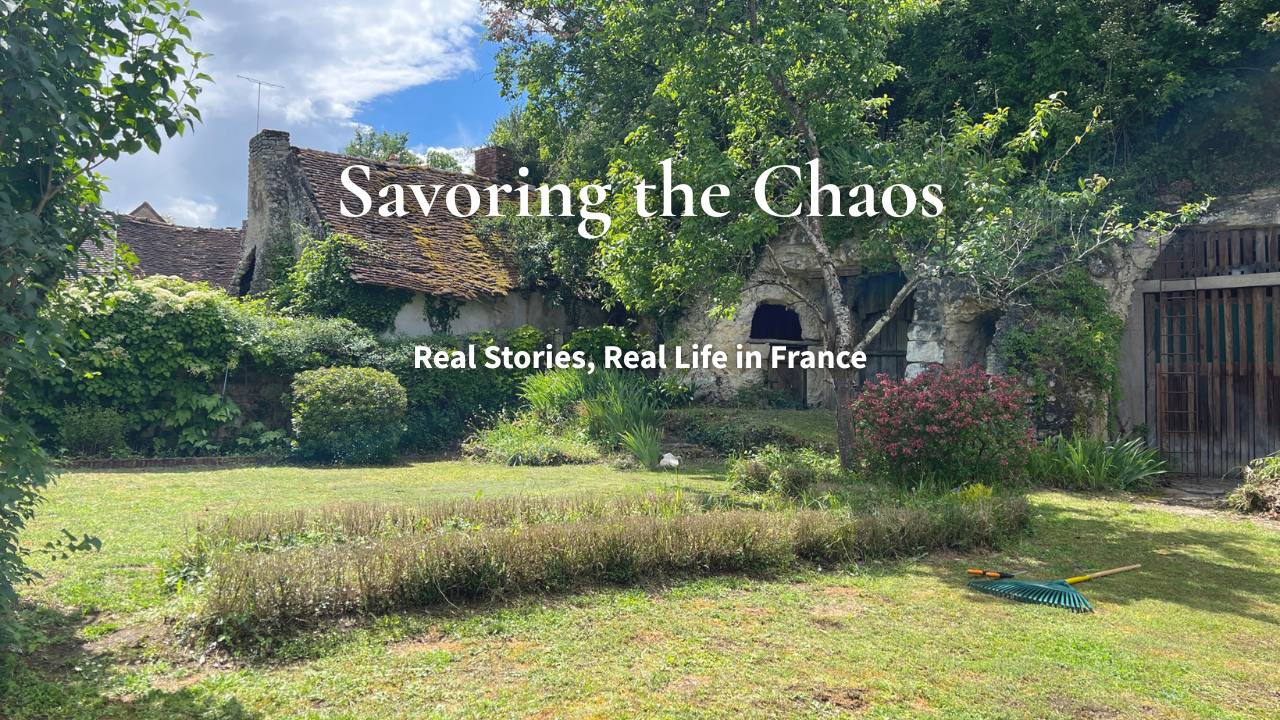
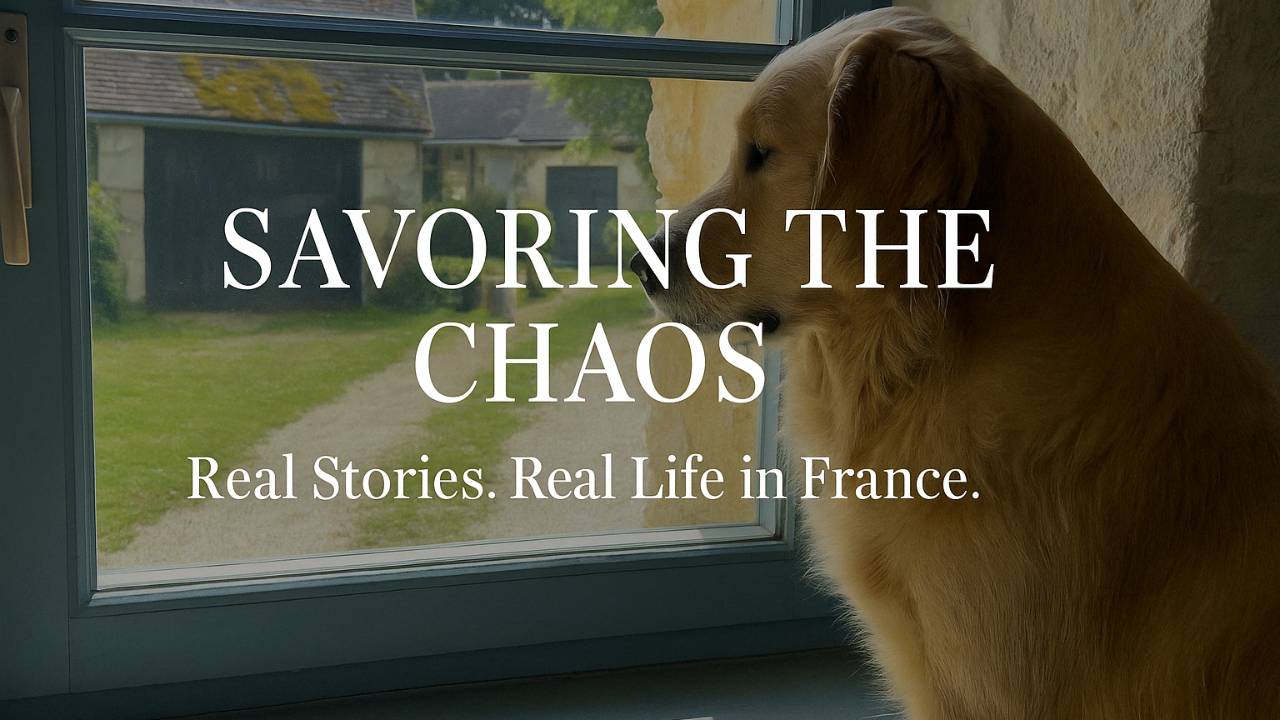

Responses